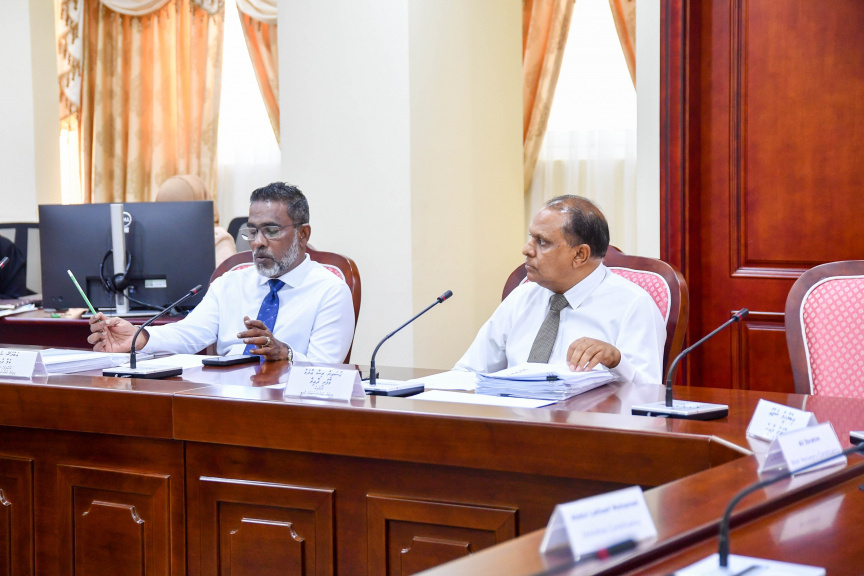
Riza Adam, President of JSC (R) at the Parliament's Judiciary Committee on October 6, 2025: MP Riza stated that the judiciary is being operated as a powerless entity. (Photo/Parliament)
Riza Adam, President of the Judicial Service Commission (JSC), declared on Monday that the judiciary, despite its crucial role, operates as a "power without power."
This assertion comes as he highlighted the stark disparity in salaries and allowances for judiciary staff compared to other associated institutions, a factor he believes has led to a steady decline in personnel since 2008.

Speaking before the Judiciary Committee, Riza addressed the persistent issue of delayed case progression within the courts, attributing it to several factors:
Defense and Prosecution Delays: Frequent requests for postponements from both defense and prosecution lawyers significantly prolong case timelines.
Logistical Hurdles:
Failure of police and corrections to produce individuals required for cases.
Lack of available interpreters for cases involving foreign nationals.
Documentation and Representation Issues:
Incomplete documentation submitted by plaintiffs.
Requirement for new lawyers to be granted time to study cases upon a change in representation.
Non-appearance of witnesses for defendants.
Absence of even a single lawyer in multi-party cases can lead to lengthy postponements.
Riza further revealed the dire state of court scheduling, stating that if a case is canceled, the earliest a new hearing can be set is approximately 1.5 months later.

He underscored the critical impact of inadequate compensation, noting that the salary structure for security forces surpasses that of the judiciary. He urged Parliament to prioritize improving the salaries and allowances of judiciary staff, warning that a failure to do so could result in a future without adequate judicial personnel.
"We must recognize the judiciary as one of the three branches of power. It is truly a power that is operated without any power today, and this should not happen".
Beyond financial woes, Adam painted a concerning picture of the physical infrastructure housing the nation's courts.

"There is no court in the city that does not rain inside," he lamented, detailing that even the seemingly pristine Supreme Court experiences internal leakage, while the High Court's ceiling is precariously supported by iron rods. He also brought to light that 52 magistrate courts share buildings with local councils, with some facing eviction orders.
Furthermore, he expressed dismay over the lack of progress on new court buildings, despite the MVR 60 million allocated in last year's state budget for the construction of 13 new court facilities as directed by the Finance Ministry.
In a recent development, President Dr. Mohamed Muizzu has announced plans to initiate a salary increment for judiciary staff beginning in November.